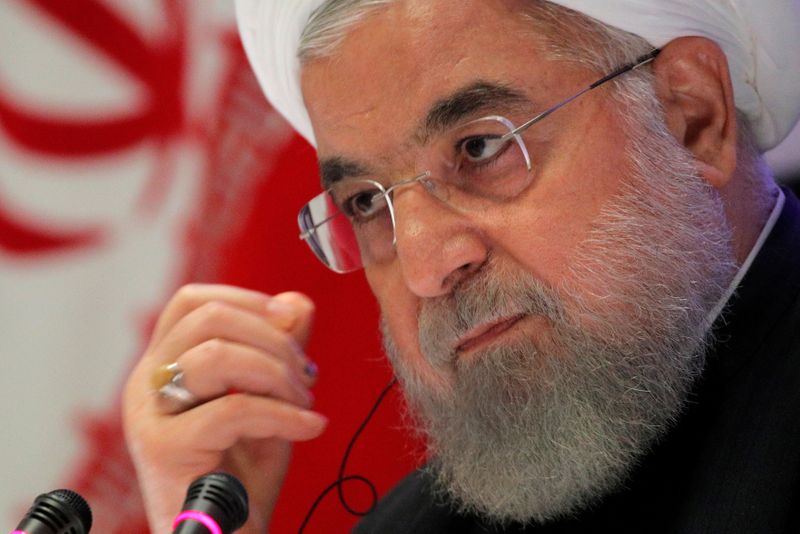DUBAI (Reuters) - Iran on Saturday moved to open businesses, religious and cultural sites as it eased restrictions imposed to contain the coronavirus pandemic.
Museums and historical sites are to reopen on Sunday to coincide with the Eid el-Fitr celebrations that mark the end of the Muslim holy fasting month of Ramadan, President Hassan Rouhani said on state television.
Shrines, some of which became focal points of the coronavirus epidemic in Iran, will reopen on Monday, he said. Worshippers have to heed social distancing and use face masks and bring their own gloves and prayer rugs, ISNA news agency reported.
Rouhani said last week that the shrines would open for three hours in the morning and three hours in the afternoon.
All workers in the country will return to work next Saturday, Rouhani said. "We can say we have passed the three stages regarding the coronavirus," he said.
The fourth phase is containment in 10 of Iran's 31 provinces, where outbreaks of coronavirus have been less severe, the president said. Screening will intensify across the country as infected patients will be separated from the rest of the population.
The president said last week that restaurants would reopen after Ramadan and sports activities would resume without spectators. Universities, but not medical schools, will reopen on June 6.
Rouhani said on Saturday that 88 percent of the fatalities from COVID-19 in Iran had underlying illnesses.
According to health ministry figures released on Saturday, 59 people died in the previous 24 hours, bringing the total death toll from the pandemic in Iran to 7,359, while 133,521 have been infected.
